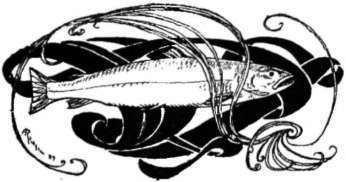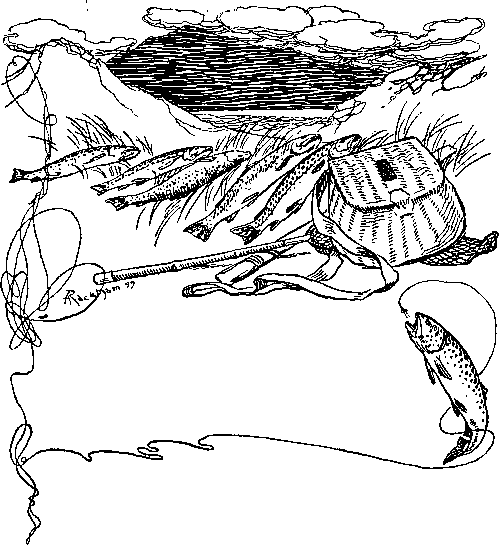Introductory. Part 5
Description
This section is from the book "Fly Fishing", by Sir Edward Grey. Also available from Amazon: Fly Fishing.
Introductory. Part 5
People talk sometimes as if a sort of still slow patience were the great quality exercised by angling. It ought much more properly to be called self-control, and if another quality essential to success is to be added, let it be endurance. Hard work and continual effort make a tremendous difference to the basket in fly-fishing, and though the amount of strength required for any given cast may not be great, yet eight hours' fishing even with a single-handed trout rod is, if the most be made of the time, a hard day's work.
There is not, it is true, the same glory of physical strength and prowess in angling as in games; but, on the other hand, the skill required is as difficult and various, and can be maintained unimpaired long after the highest point of physical activity has been reached and passed. When, moreover, as the years go on, reflection and observation begin to take the place of competition, a wider pleasure in angling opens out. The extent to which we appreciate this is, I suppose, again a matter of temperament. It is not everybody who cares for the independence and comparative solitude of angling; and there are probably some people who would consider either of these as a drawback. Nor are we all equally attracted by the charm and changes of the season and by natural beauties, nor all equally interested in the life of the country. The gift of being pleased by these things is one of the most precious possessions that a man can have within him, but it is rare to find it at an early age. In boyhood it is generally dormant, and it is not this that we think of when we first begin to fish; but presently there comes a time when we realise that angling is often taking us to the most beautiful places of the country at the very best times of year, and then we feel a new sense of gratitude and a crowning delight. From now onwards we look at more than the river. There come times when the beauty of the day or of the place seems to possess us, so that the thought of angling ever afterwards becomes full of beautiful associations, of delightful meadows and woods, of light upon water, of the sound of streams, till in the recollection of days that are past, the vision of these things perpetually rises up and fills us with joy. Then there comes the longing, which is intense, to escape and be again amongst the surroundings that we remember, and we plan to set apart our leisure for angling, partly for its own sake, but partly also because we cannot let the season go by without revisiting chosen places, when we know that spring or summer is there. One thing perhaps should be borne in mind to prevent disappointment, and that is not to ask too much of Nature suddenly, when we have been strained by overwork; at such times we are out of tune, and more fit for rest than for enjoyment. If we are to enter into the moods of Nature, we must bring with us some vigour and elasticity of spirit. A feeble mind looking upon fair scenes with a languid eye will not feel the joy of them, and it is with Nature as with friendship ówe cannot take all and bring nothing. On the other hand work, if it be of an interesting sort and not crushing in amount, is a fine preparation for the country. Such work is stimulating, and when we make our escape we do it with faculties erect and active, with every sense alert and eager for sights and sounds and all joys, which are not to be met with in cities. Then we bring with us such an uprising of the spirit, that we seem to be fit companions for Nature even on her finest and best days in spring.


Continue to:
